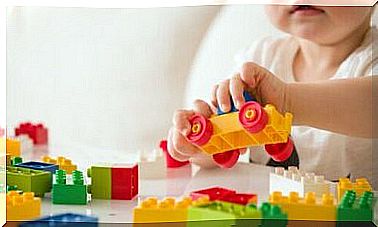How Can You Develop Your Self-control?

You set goals, you are motivated to achieve them, and you want to change your habits. You know that there is a change you have to make, that it will be good for you, but still you fail.
If it is logically the best thing for you, why do you continue with the self-destructive behavior?
Because you lack self-control!
Does this sound like you? We have all been through it when we try to do things like implement a diet, exercise more or quit smoking. But do not worry! You can really improve and develop your self-control. Keep reading to learn some useful tools.
Use self-supervision to develop your self-control
The truth is, you can not always stop yourself from doing something you know is self-destructive. Rationally you know you have to control yourself, but at some point you give in.
You can tell yourself that a hamburger is okay, that you can go back to your diet tomorrow and continue to lose weight. You promised yourself to go to the gym at least 5 times a week, but it’s okay to skip one, it’s only this one time.
To start gaining more self-control in these situations, self-monitoring is the first tool you need to use, which consists of writing down all the times you do the behavior you want to avoid. Just do not get obsessed with it!

This will help you visualize how often you miss it and make you more aware that you are not just doing it “once in a while”. You can also write down the times you replace that behavior with a healthier one. That way, you will emphasize the effort you are making and use it for positive reinforcement.
Redistribution
In psychology, researchers have noted that one of the biggest obstacles to developing your self-control is the way you allocate responsibility for your actions. Your distribution style directly affects the way you evaluate yourself and the changes you make in behavior.
If you do not take responsibility for your behavior, you will not have as much self-control. You think you can do nothing to change the situation, so there is no point in trying. As a result, sadness and even depression can develop.
Therefore, you should reconsider who is responsible for your actions. Try the following exercise: think about the positive and negative events that have happened over the past few weeks and distribute the degree of responsibility that you think you had in each case.

Determine the percentage due to you, other people and coincidences. This will help you see the reality of the situation and see where you can change the outcome, which will help you change your behavior.
Set goals
Sometimes people develop problems with self-control because they set unrealistic goals. For example, if you tell yourself that you will never eat carbs again, or that you will exercise 6 times a week, there is a much greater chance that you will fail.
Therefore, it is important to adapt to reality. Instead, it is more affordable to set small goals that you can achieve gradually. That way, you can increase the demands on yourself little by little as you achieve a goal.
These goals should be positive, realistic, specific and under your control. For example, instead of exercising 6 times a week, plan to exercise 3 days a week for 2 months, then 4 days a week for the next few months, until you reach 6. It’s much easier to deal with it this way, right?
Reinforcement
The easiest way to improve and maintain a behavior is through reinforcement . You can reinforce your new habit in many ways, by giving yourself a treat, going to the store or doing something less materialistic like telling yourself how well you are doing. All of this will foster more positive emotions.
You can create two lists of extensions. First, create one with different degrees of rewarding activities that represent different reward levels depending on the level required to achieve the behavior. This list can range from buying your favorite treats to going on vacation.
Then you can write down positive attributes and values about yourself (eg I am consistent, I will be able to achieve this, I have done a good job, etc.). You will tell yourself these things immediately when you complete the things you are trying to reinforce.
If you practice the tools we have explained here, it is very important to be consistent, because that is the only way you can develop your self-control. And it’s worth the effort!









